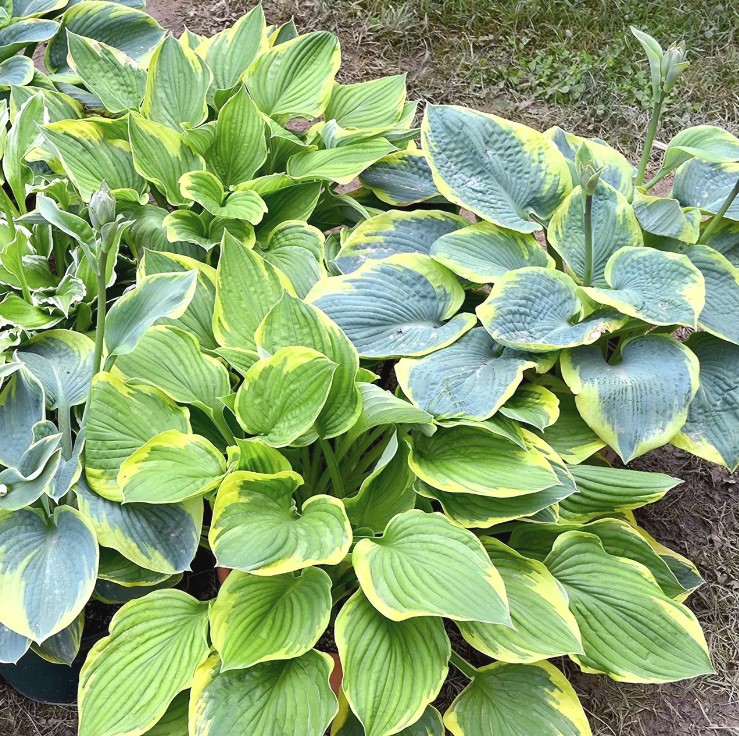If you are planning a trip to Viles Arboretum, make sure to stop by the Hosta Collection, as this time of year is nearing peak bloom. This collection is a very short hike from the Visitors Center and offers a nice reprieve from the heat of summer as you stroll through the shade of the Birch-lined trail that houses the collection.

Hosta plants have been a favorite foliage plant in New England gardens since the early 1800s and they continue to thrive in gardens throughout Maine. With names such as “Captain Kirk”, “Fried Green Tomatoes”, “Pineapple Upsidedown Cake” and “Mama Mia” the variety of Hosta’s in the Viles Arboretum are sure to captivate your attention.
This Hosta Garden originated with the gift of Harvard University’s Arnold Arboretum Hosta Collection from the Case Estate in Weston Massachusetts. Over 100 Hostas were transplanted to this location in 1992 by members of the Maine Hosta Society under the direction of David S.K. Platt. New Hostas added annually bring the current total to over 200 varieties in over 300 clumps making this the largest public Hosta Garden in Maine.
For those of you interested in planting Hostas in your own garden. Here are some basics to keep in mind:
- Hosta plants should be divided and planted in the early spring or in the late fall before the first frost.
- Plant in an area with good drainage in the hole at a depth of about 12 inches. Fill the area around the Hosta with rich soil.
- Adequate room (about 8-10 inches for a small Hosta plant) should be left at the perimeter of the plant to allow for growth as the plant matures.
- In an ideal Hosta garden, the plants would receive generous watering all season long. A slow, deep soaking of around an inch of water per week through the growing season is perfect.
- While hostas are known for being a shade-loving plant, there are some varieties that do best with a bit of sunlight exposure. All Hostas need some shade (at least 3 hours per day) and should never be planted in direct sunlight.
- Most Hosta plants are not susceptible to disease and are quite forgiving and hardy, although they are a favorite snack of deer and slugs.
- Once established, Hostas are virtually maintenance free, hardy and fast growing. These plants will spread and multiply and may be divided for sharing after a few years of growth.
Additionally becoming a member of the Maine Hosta Society Facebook page can offer newcomers advice and inspiration.
We hope you enjoy your visit and remember to send photos of all of the beautiful Hostas in bloom!

